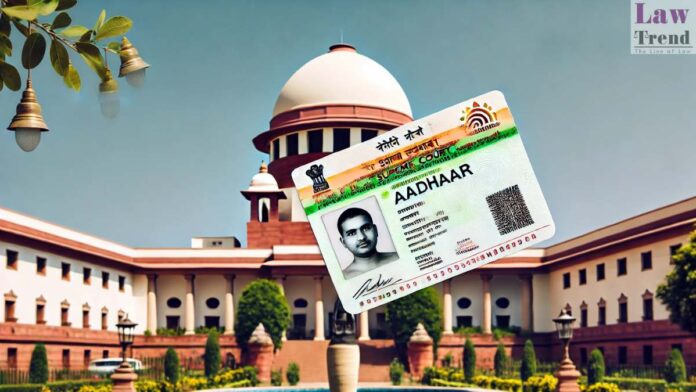New Delhi, August 12 — The Supreme Court on Tuesday began hearing petitions challenging the Election Commission of India’s (EC) special intensive revision (SIR) of electoral rolls in poll-bound Bihar, with Justice Surya Kant clarifying that an Aadhaar card cannot be treated as conclusive proof of citizenship.
A bench of Justices Surya Kant and Joymalya Bagchi is examining whether the EC has the legal authority to carry out such verification. “If they don’t have the power, everything ends. But if they have the power, there can’t be a problem,” Justice Kant remarked, referring to Section 9 of the Aadhaar Act, which states that Aadhaar is not proof of citizenship and must be verified.
Petitioners Warn of Mass Voter Exclusion
Appearing for RJD MP Manoj Jha, senior advocate Kapil Sibal argued that the EC’s procedure could lead to large-scale voter exclusion, disproportionately affecting those unable to submit the required forms. He alleged that even voters continuously on the rolls since 2003 were being asked to reapply, with non-submission leading to deletions despite no change of address.
Sibal also pointed to instances where living voters were wrongly marked as deceased and vice versa.
Court Seeks EC’s Data on Revision
The bench noted that the high response rate weakened claims of mass deletion. “If out of 7.9 crore voters, 7.24 crore voters responded, it demolishes the theory of one crore voters missing,” Justice Kant observed, describing the dispute as “largely a case of trust deficit.”
The court asked the EC to provide data on voter numbers before and after the revision, along with statistics on deceased voters removed from the rolls.
EC Defends Exercise as Cleansing the Rolls
Senior advocate Rakesh Dwivedi, representing the EC, argued that minor defects were inevitable but correctable as the list was still in draft form. He added that 6.5 crore voters were exempt from submitting documents as they or their parents were on the 2003 rolls.
The EC has maintained that the revision is aimed at “weeding out ineligible persons” and ensuring the purity of the electoral process. The final rolls will be published on September 30.
Activists Call Process Disenfranchisement
Advocate Vrinda Grover termed the revision unlawful and beyond the EC’s powers. Activist Yogendra Yadav called it “the largest exercise of disenfranchisement in the history of the world,” alleging that 65 lakh names — including 31 lakh women and 25 lakh men — had been deleted. He warned that appeals were often decided only after the rolls were frozen, leaving voters without a remedy until the next election cycle.
The hearing will continue, with the court set to decide first on the EC’s authority before addressing the legality and impact of the ongoing revision.




